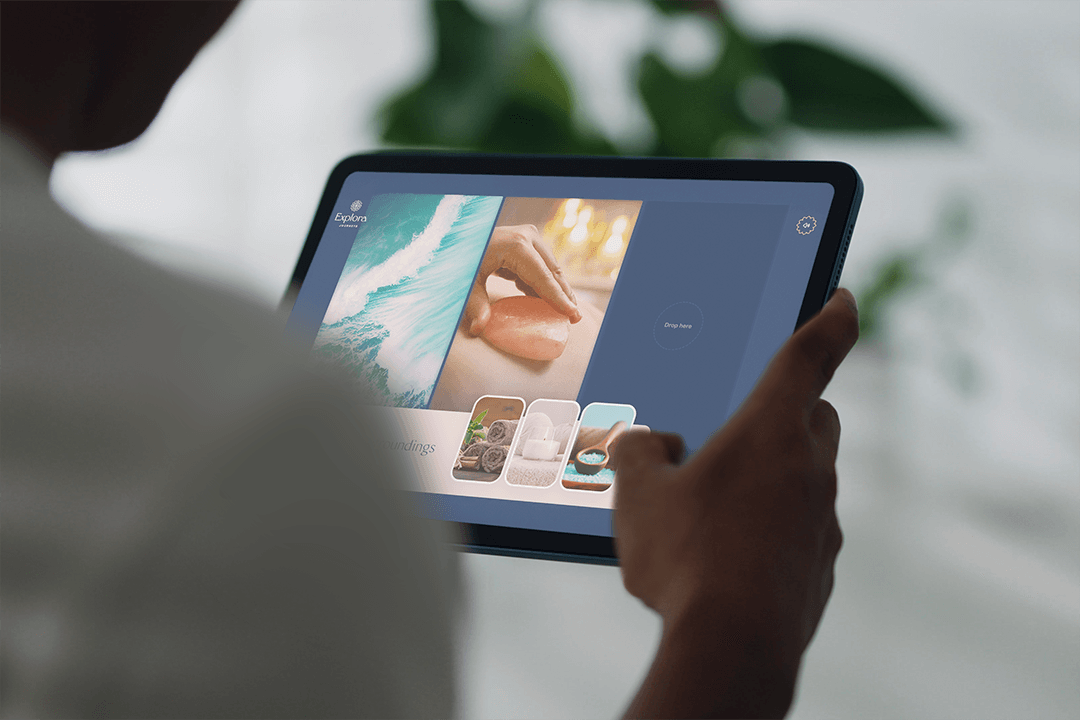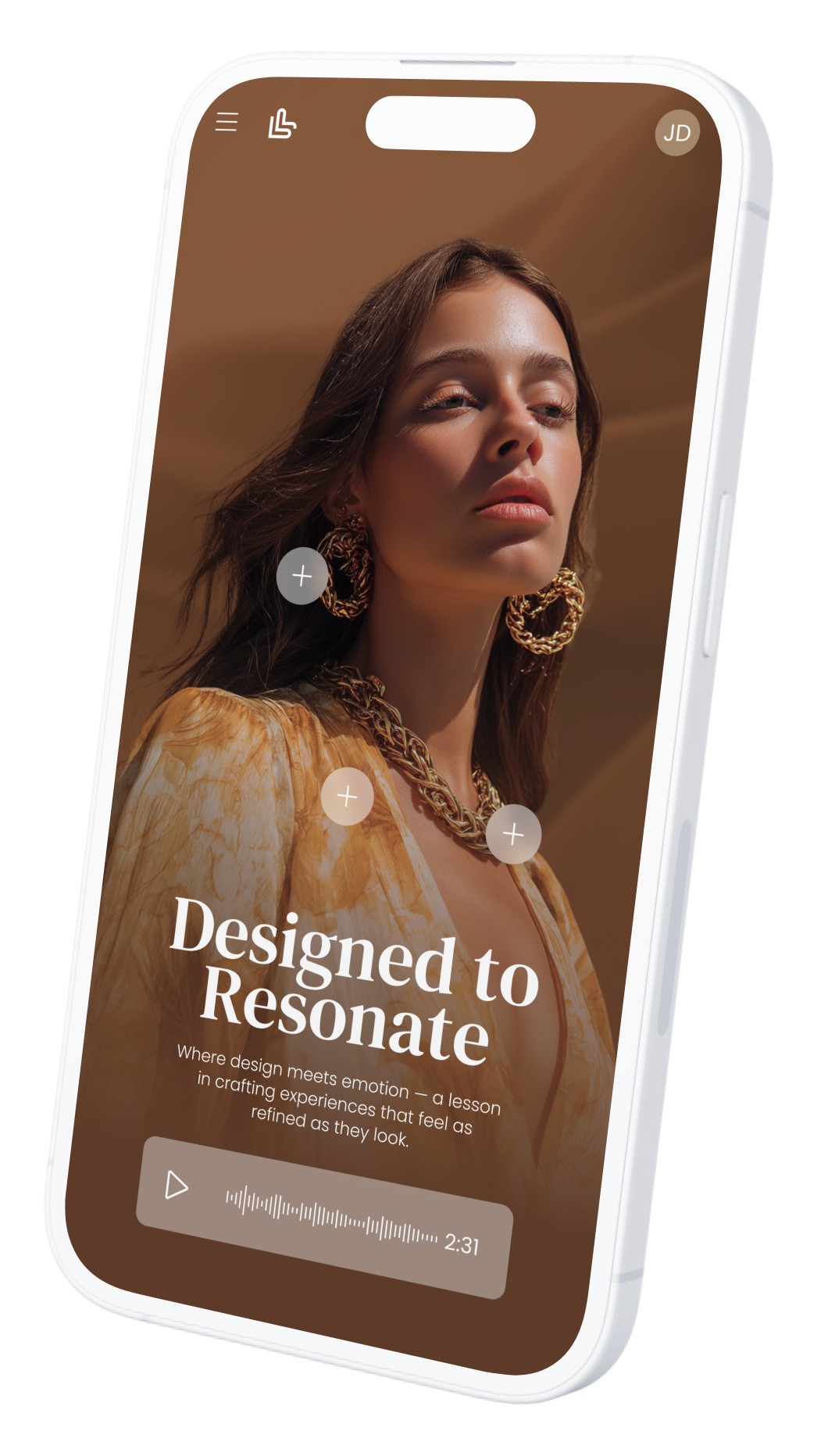Hybrid Intelligence: The Future of Adaptive Learning in Premium Retail Training
The Future of Adaptive Learning for Premium Retail Training: A Hybrid Balance Between AI and Human Expertise
In luxury and premium retail, true adaptive learning doesn’t rely solely on algorithms, it thrives on the balance between technology and human intelligence. The most effective approach is a hybrid model, where AI supports the learning process by analysing performance data, engagement trends, and individual preferences to recommend tailored content and pathways.
However, the human touch remains essential. Retail learning leaders and instructional designers fine-tune the AI logic, define priorities, and shape how recommendations evolve — ensuring every learning experience reflects the brand’s culture, values, and craftsmanship standards.
The outcome is a refined, semi-automated ecosystem that combines the precision of data with the emotional intelligence of people — a learning journey that feels as curated and authentic as the client experience on the shop floor.
Why Human Control Matters: Protecting the Brand Narrative in Premium Retail Learning
In fashion, luxury, and cosmetics, every detail carries meaning, from tone of voice to visual style.
While AI can support training operations by automating tasks or suggesting content, it lacks the sensitivity to interpret the emotional depth, storytelling, and cultural heritage that define premium brands.
In this world, training is not just information transfer, it’s brand transmission. That’s why human guidance is crucial: managers and educators must oversee how knowledge is shared, ensuring that every learning path reflects the brand’s essence, elegance, and purpose.
Résumé — Key Points:
AI supports efficiency, but human control ensures brand authenticity.
Premium retail learning demands emotional and cultural precision that AI cannot replicate.
Managers curate the narrative, tone, and aesthetics of each learning experience.
Brand educators safeguard coherence across global markets and languages.
AI enhances personalisation, while humans preserve meaning and creative direction.
The most effective model is a hybrid approach, where technology assists and humans lead.
AI-Assisted, Not AI-Led: Keeping Human Intelligence at the Core of Learning Design
In premium retail, the art of learning design cannot be left entirely to algorithms.
Artificial intelligence offers valuable insights, it analyses data, tracks engagement, and suggests next steps, but it’s the human expertise that ensures every course, image, and message reflects the brand’s personality and purpose.
AI may guide the flow, yet brand educators and learning designers define the direction, curating content that embodies emotion, precision, and authenticity.
The balance between automation and human intuition is what transforms digital training into a truly branded learning experience.
Résumé — Key Points:
AI analyses learner behaviour and performance to enhance efficiency.
Final control stays with human experts who ensure relevance and alignment.
Learning design in luxury retail requires empathy, aesthetic judgment, and brand sensitivity.
AI serves as a supporting tool, not a creative decision-maker.
The most effective systems combine data intelligence with human storytelling.
Human-led oversight guarantees coherence, emotion, and brand integrity across all learning experiences.
Strategic Customisation: Guiding AI with Brand Intelligence
In luxury and premium retail training, strategy defines impact.
AI can analyse and suggest, but it’s the managers and learning leaders who set the direction. Through strategic customisation, they pre-define goals, learning priorities, and performance indicators — shaping how the algorithm behaves.
This ensures that every recommendation, challenge, or learning path reflects the brand’s vision and business objectives. Rather than allowing AI to operate freely, managers steer it with purpose, blending data precision with brand-driven intent to deliver meaningful, consistent learning experiences across all markets.
Résumé — Key Points:
Managers define learning goals and success metrics that guide AI decisions.
Strategic oversight keeps training aligned with brand values and business priorities.
Custom rules shape the logic and flow of adaptive learning paths.
Ensures AI recommendations remain relevant, purposeful, and on-brand.
Combines algorithmic intelligence with human strategy and retail expertise.
Empowers brands to maintain control and coherence in global learning programs.
Human-Centred Curation: Crafting Learning That Reflects the Brand’s Soul
In premium retail, learning is a reflection of the brand itself, its values, its aesthetics, and its way of engaging with clients.
That’s why human-centred curation is essential. Learning experts, trainers, and brand educators carefully select the right modules, storytelling formats, and visual styles to strengthen desired behaviours and convey brand essence.
While AI can suggest content, it’s the human eye and emotional intelligence that ensure every learning touchpoint feels authentic, elegant, and on-brand. This human layer transforms digital content into a meaningful learning experience that resonates deeply with retail teams.
Résumé — Key Points:
Human curation preserves authenticity and emotional resonance in learning.
Experts select formats that embody the brand’s tone, values, and aesthetics.
Ensures training content reinforces behaviours aligned with brand culture.
Balances AI efficiency with creative and cultural sensitivity.
Keeps the learning journey coherent, aspirational, and human at its core.
Turns retail education into a true extension of the brand experience.
Dynamic Learning Paths: Adapting in Real Time, Aligned with Brand Excellence
In the world of premium retail, learning must evolve as quickly as the client experience itself.
Dynamic learning paths make this possible , adapting automatically to each learner’s progress, confidence, and feedback.
Yet behind this fluidity lies precision: every adjustment remains guided by the brand’s objectives, tone, and culture.
The result is a personalised learning journey that feels seamless and relevant , where AI continuously refines the experience while brand educators ensure alignment, depth, and storytelling consistency across all markets.
Résumé — Key Points:
Learning content adapts in real time to each learner’s performance and confidence.
Keeps every journey fully aligned with brand standards and business goals.
Combines AI responsiveness with human-led quality control.
Delivers relevant, evolving experiences that keep learners engaged and motivated.
Ensures training reflects the brand’s rhythm, tone, and priorities.
Creates a seamless connection between personalisation and brand integrity.
The Learning Lab Advantage: Intelligent Adaptation, Human Control
The Learning Lab brings a unique approach to adaptive learning — one where AI personalisation meets brand precision.
Our hybrid framework allows artificial intelligence to tailor each learner’s experience while keeping brands fully in control of content, tone, and learning flow. Every journey is carefully shaped to feel intentional, coherent, and unmistakably on-brand.
This balance between automation and human curation ensures that training remains not only effective and data-driven but also emotionally connected to the brand’s identity, values, and storytelling.
Résumé — Key Points:
Hybrid adaptive model: AI personalises, humans direct.
Brands maintain full control over content, visual identity, and learning flow.
Ensures every course is aligned with culture, craftsmanship, and tone of voice.
Combines data intelligence with design excellence for immersive learning.
Creates consistent, meaningful, and branded learning experiences across global teams.
The Learning Lab transforms adaptive learning into a strategic brand experience.




